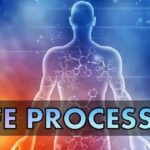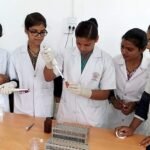Addiction recovery from drug and alcohol demands a lifelong commitment. Even after being discharged from a rehab facility, the journey does not end.
Recovery from drug and alcohol addiction demands a lifelong commitment. Even after being discharged from a rehab facility, the journey does not end. Rather, this is the first step to healing; from here, you need to choose a halfway house to help in transitioning to your old life. Sober living homes provide you with the right kind of environment, support, and encouragement you need to stay drug-free and alcohol-free.
Just like halfway houses are crucial for complete recovery you need a well-defined plan that will guide you through every step of your healing journey. Without this, chances of relapse are very high. The responsibility of keeping oneself sober and making life-altering decisions can seem rather intimidating to a recovering addict.
click here – 5 Reasons Why Doctors Should Have Disability Insurance
Tips for creating a recovery plan post-rehab:
- You must ensure that you continue your commitment towards staying sober. For this, take advantage of the many formal and informal after-care programs in your vicinity. Certain therapeutic sessions which may have benefitted you during the treatment can be helpful now. Make an effort to attend local AA meetings to find support that will aid your recovery.
- Most patients of substance abuse disorder have deep-rooted psychological issues. This happens because these two conditions tend to feed off one another. So, mental health wellbeing is critical for faster recovery from recovery from marijuana addiction. Find out about mental health support options; support groups and 12-step meetings by local AAs can be a good place to start.
- You must focus on health and wellness because this is what will pull you through these rough times. Detoxification of the body during treatment can be exhausting, physically and emotionally. So, it is important to keep eating right and resting well.
- Ensure you fulfill all your basic duties first; this achievement will give you an emotional boost to return to a productive and sober life. So, start looking for jobs, relocation opportunities, or attend to pending legal matters, whatever needs to be done right away.
- It is important to know what is to be done in case of a relapse. You need to remind yourself about your recovery goals and understand what your triggers are and how to keep these in check. Have a “toolkit” in place that will keep you focused and help you tackle triggering environments. You can practice meditation and relaxation, stress-management techniques. It is important to find a support-network to get help when things become too hard for you to handle on your own.
- Making friends whom you can count on is crucial for faster recovery. You need to avoid hanging out with those who can force you to go back to your addiction. The best way to stay away from such people is to find a new friend circle or a new hobby that keeps you engaged and content.
- Cutting out negativity from your life and focusing on positives are most important for healing yourself. Avoid places which can trigger temptations and look for things that bring you comfort and security.
- Setting achievable personal goals can help you feel motivated and encouraged on this journey. Whether it’s a new course, a new musical instrument you start learning, or a new friend you make, each step is a success.
click here – Good Reasons for You to Own a Private Label Medicinal Mushroom Supplements Brand
So, mental health wellbeing is critical for faster recovery from recovery from marijuana addiction. However, for people who feel shy consulting face-to-face, they can also consider online suboxone treatment which will be done at the comfort of your own home.
Halfway House Directory will provide you with a comprehensive list of sober living homes in every state. Reach out to them when you are looking for a halfway home after rehab.





